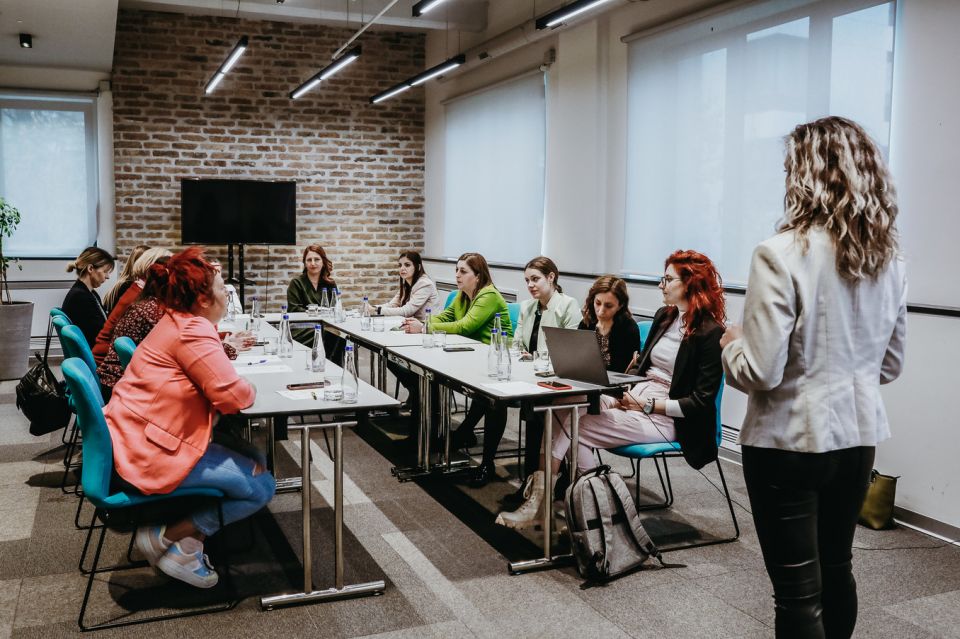Representatives of the business, civil and public sectors gathered at the Move.Link.Engage. conference to discuss together, within working groups, how to solve problems in the field of youth employability, environmental protection and sustainable development.
I working group - Education, employability, labor market trends
Bearing in mind the complexity and frequent and turbulent changes in the labor market, individual employability support mechanisms have never been more necessary. When it comes to adults, one of the important elements of motivation for participating in education and training is the awareness that new skills will bring us, among other things, new employment opportunities. When it comes to young people, they are increasingly recognized as a sensitive category of the population - especially regarding the transition from the world of education to the first jobs. With the aim of encouraging the exchange of experiences and practices, this working group was made up of representatives of the public, civil and business sectors who deal with issues of education, employability, trends and transitions in the labor market.
The need to connect, exchange information and map potential partners that would help overcome challenges together, is the basic conclusion of this working group.
II working group - Civil control of industrial pollution
So far citizen measurement of air quality has proven to be a good approach for involving citizens in the issue of environmental pollution. However, the technology that citizen use so far covers a limited range of pollutants. There is a growing number of citizens and activists from different areas throughout Serbia, who point that air pollution is originating from industry. On the other hand, companies have a responsibility to improve their production processes, reduce the harmful impact on the environment and operate transparently. This working group brought together representatives of citizens, activists, civil society organizations, experts in the field of air quality, representatives of public health institutions, as well as the private sector.
One of the conclusions of the working group is that we measure the pollution that comes not only from chimneys, but also from landfills, and request of the citizens should be the inspection of the operation of the industries.
III working group - Partnership for sustainable development
The Partnership for Sustainable Development working group dealt with the needs and models of cooperation between the business, civil and public sector. The concept of sustainable development and Agenda 2030 (especially sustainable development goal 12, which includes the sustainability of companies), as well as sustainable business and ESG standards, were used as a framework and starting point. The goals of sustainable development represent a suitable framework for mobilizing available resources in order to build sustainable communities and improve the quality of life of citizens of Serbia. In order to achieve this ambitious goal, the cooperation of all important actors who make important decisions and mobilize the local community is necessary - and these are, above all, the three sectors mentioned. Members of the working group identified existing collaborations and defined potential models that would enable the improvement of this collaboration in the future. Based on the collected information, research will be conducted that will result in concrete recommendations and an advocacy initiative.
The conclusion of the working group is that we need: more intensive cooperation of the civil, public and business sectors, involvement of local communities, but also additional education.
The working groups will also meet in the coming period, where they will continue to connect and work on a set of recommendations for solving problems in these three areas.
